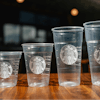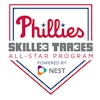WASHINGTON (AP) -- Only a small fraction of children's toys tested for toxic substances and choking risks have been found to violate federal safety regulations as holiday shopping shifts into high gear, consumer advocates said Tuesday.
"We're seeing progress, but it's not perfection," said Elizabeth Hitchcock, public health advocate for U.S. Public Interest Research Group. "There are still hazards on store shelves that consumers should be aware of."
PIRG credited a 2008 law that set stronger limits and standards for children's products for helping to make many of the products on store shelves safer for youngsters. The law was passed in the wake of a wave of recalls of lead tainted toys.
PIRG had 260 toys and other children's products from major retailers and dollar stores tested for toxic substances such as lead and antimony as well as for the risk of choking presented by small parts. Four of the items tested violated federal safety regulations for children's toys.
In its 25th annual "Trouble in Toyland" report on hazardous playthings, the organization focused on three hazards: lead or other metal-tainted toys, soft plastic toys that contain chemicals called phthalates, and toys with small parts that can choke young children.
Higher than permissible levels of lead or antimony were found in four toys -- a stuffed animal, a baby book, plastic toy handcuffs and a toy gun. The toys were sold at stores including Toys "R'' Us and Family Dollar. Messages left for both companies were not immediately returned.
Lead can cause irreversible brain damage, and antimony has been linked to fertility problems in animals.
Overall, though, the toy industry praised the findings.
"Toys on shelves now are safer than they have ever been before," said Stacy Leistner, a vice president at the Toy Industry Association.
While none of the products tested violated federal limits for small parts, PIRG said several toys were still hazardous for children under 3 because the size was not that much bigger than allowed by law.
In one case, a toy train made by Haba was singled out after a Washington, D.C., mother, Jennifer Tapper, contacted the group.
Tapper said her 1-year-old son, Jack, nearly choked to death after swallowing one of the small removable blocks on the train. She performed the anti-choking Heimlich maneuver on the boy to save him.
Haba, in a statement, said the train meets all current safety laws. Even so, the company said it has suspended shipments to its retailers and that future production runs of the train will have a block, like the one involved in the Tapper incident, that is longer -- as an extra measure of safety.
Hitchcock said her group wants the Consumer Product Safety Commission, which regulates thousands of household products, to make choking standards more strict.
The toys identified in the group's report as potential dangers were:
--A stuffed animal monkey made by Play Pets that contained lead just slightly above the limit.
--The red handle of a baby book sold at Toys "R'' Us that contained antimony that was about twice the limit.
--The surface coating of toy plastic handcuffs sold at Toys "R'' Us that had excess antimony, many times higher than allowed.
--The surface coating of a wild ranger toy gun sold at Family Dollar with slightly higher levels of antimony than allowed.






















